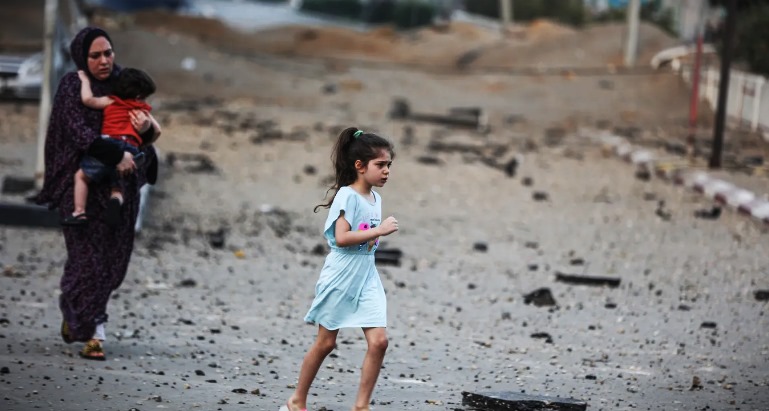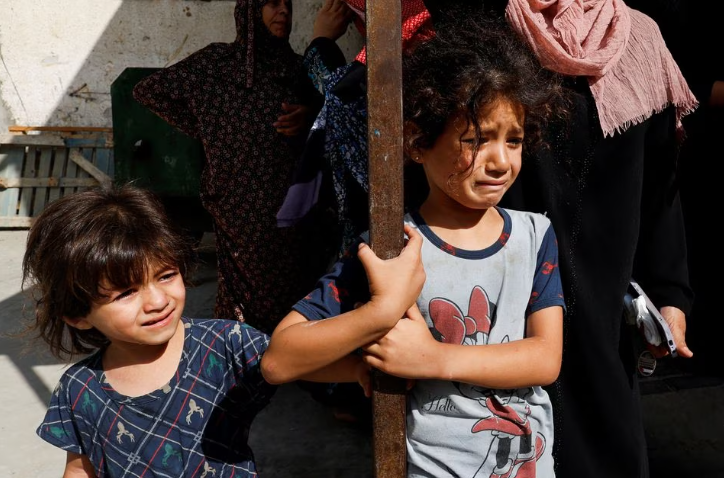While the physical damages of war can be seen and quantified, the invisible scars it leaves on the mental health of children are far more elusive. Yet, they are equally devastating. In Gaza, children growing up in the shadows of conflict find themselves as silent witnesses to a world of chaos and loss. This blog explores the deep and lasting impact of war has on the mental health of Gaza’s youngest citizens.
Mental Health: The Unseen Victim of War
When we think of war’s casualties, our minds often go to physical injuries and death tolls. However, the trauma extends beyond what is visible. Studies have shown that children who experience war are susceptible to a range of mental health issues, including anxiety, depression, and post-traumatic stress disorder (PTSD).
Early Exposure to Violence: Impact of War
Exposure to violence at an early age can have a profound impact of war on a child’s cognitive and emotional development. Kids in Gaza don’t have the luxury of a shielded childhood; they witness things that no child should ever see. This early exposure to trauma leaves an indelible imprint on their minds, shaping their perception of the world and themselves.
Case Studies: Real Lives Affected
Meet Sara, a seven-year-old whose vivacious personality took a dark turn after she witnessed the destruction of her home. The event left her in a constant state of panic and fear. Now, even the sound of a car backfiring sends her into a state of extreme distress.
On the other hand, we have Jamal, a 13-year-old who lost his father in the conflict. This unfortunate event has led to him becoming withdrawn and increasingly aggressive. Jamal often finds himself feeling hopeless and exhibits a general disinterest in life.
How Stress Manifests in Children
In children, the symptoms of stress and trauma manifest differently than they do in adults. Apart from emotional symptoms like frequent crying and irritability, physical symptoms like stomachaches and headaches are common. Sleep disorders, a decline in academic performance, and social withdrawal are also signs that a child is mentally distressed.
Inadequate Mental Health Support
While the need for mental health support in Gaza is immense, the resources are woefully insufficient. Therapists and counselors are few, and the stigma attached to mental health often prevents families from seeking help. This leaves the children to navigate their emotional upheaval largely on their own, exacerbating the problem.
Coping Mechanisms: A Double-Edged Sword
Children develop their own ways to cope with the stresses they experience. While some find solace in art or friendship, others might adopt harmful coping mechanisms like aggression or withdrawal. It’s crucial to provide healthy avenues for these children to express and manage their emotions.
Steps Toward Improvement
The need for specialized mental health programs for children in Gaza is clear. Such programs should aim to create safe spaces where children can express their feelings, receive professional help, and be provided with the tools they need to cope with their daily challenges.
How You Can Help
Awareness is the first step towards making a change. By sharing stories and articles like this one, you contribute to bringing the plight of Gaza’s children into the public eye. Financial contributions can also make a meaningful impact. There are several NGOs actively working in Gaza to provide both immediate aid and long-term mental health support. Your donations can help these organizations reach more children in need.
Final Words: Impact of War
In a world torn apart by war, it’s the youngest who suffer the most. The mental health crisis among children in Gaza is a silent epidemic that needs urgent attention. While we may not be able to end the conflict overnight, we can take steps to mitigate its effects on the upcoming generation.
By educating ourselves and others, contributing to relevant causes, and pushing for systemic change, we can give these children something invaluable: the chance to heal, to grow, and to aspire for a better future.



